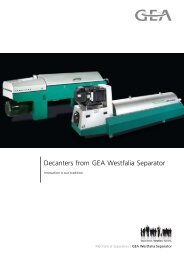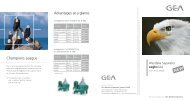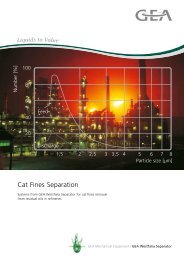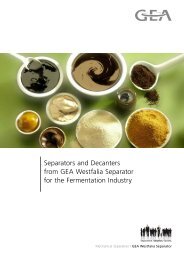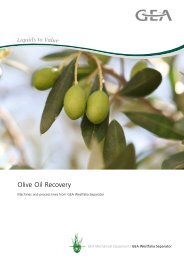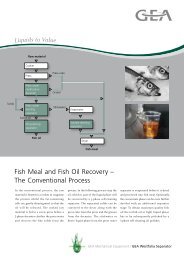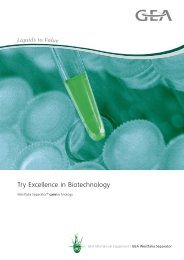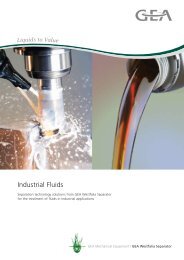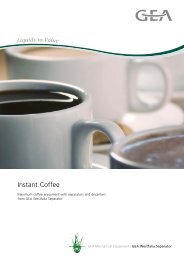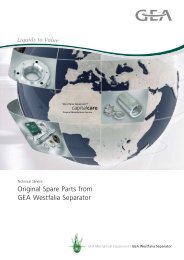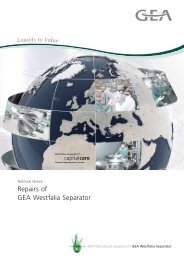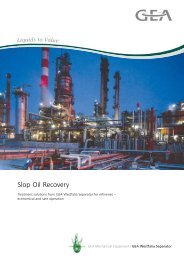Westfalia Separator® seaprotectsolutions - ShipServ
Westfalia Separator® seaprotectsolutions - ShipServ
Westfalia Separator® seaprotectsolutions - ShipServ
You also want an ePaper? Increase the reach of your titles
YUMPU automatically turns print PDFs into web optimized ePapers that Google loves.
Separation ofsolids andtwo liquid phasesof drain waterRecovery of oilphase in drain waterReduction ofdisposal costsThe oil can be mixedwith fuel oil andprocessedin the gen sets orpropulsion enginesProfit instead ofdisposal costsDrain Waters with High Solids ContentCleaning highly contaminated drainage waters with thecombination of a decanter and a disk stack centrifugeOn platforms, drilling ships, and rigs all kinds ofdrain fluids are produced. They come from drainages,residues, cleaning processes, drilling cuttings, rainand seawater. Most of these drain liquids contain ahigh percentage of oil and solids. If this drain wateris treated, not only disposal costs can be reduced,but profit can also be generated with the oil phaserecovered from the drain water.As the oil as well as water content can vary from10 to 90 % and the solid content can vary from 1 to10 %, either disk stack centrifuges or decanters can beused for treatment of the drain water. Decanters arenormally used in feed with a solid content of morethan approx. 5 % (by vol.) A disk stack self-cleaningcentrifuge can be used downstream of the decanterto polish either oil or water phase or both. For thefinal water phase treatment GEA <strong>Westfalia</strong> Separatorapplies the IMO certified system as described onpage 7. This way the whole process can be consideredas certified in accordance to IMO ResolutionMEPC 107(49).19GEA <strong>Westfalia</strong> Separator



